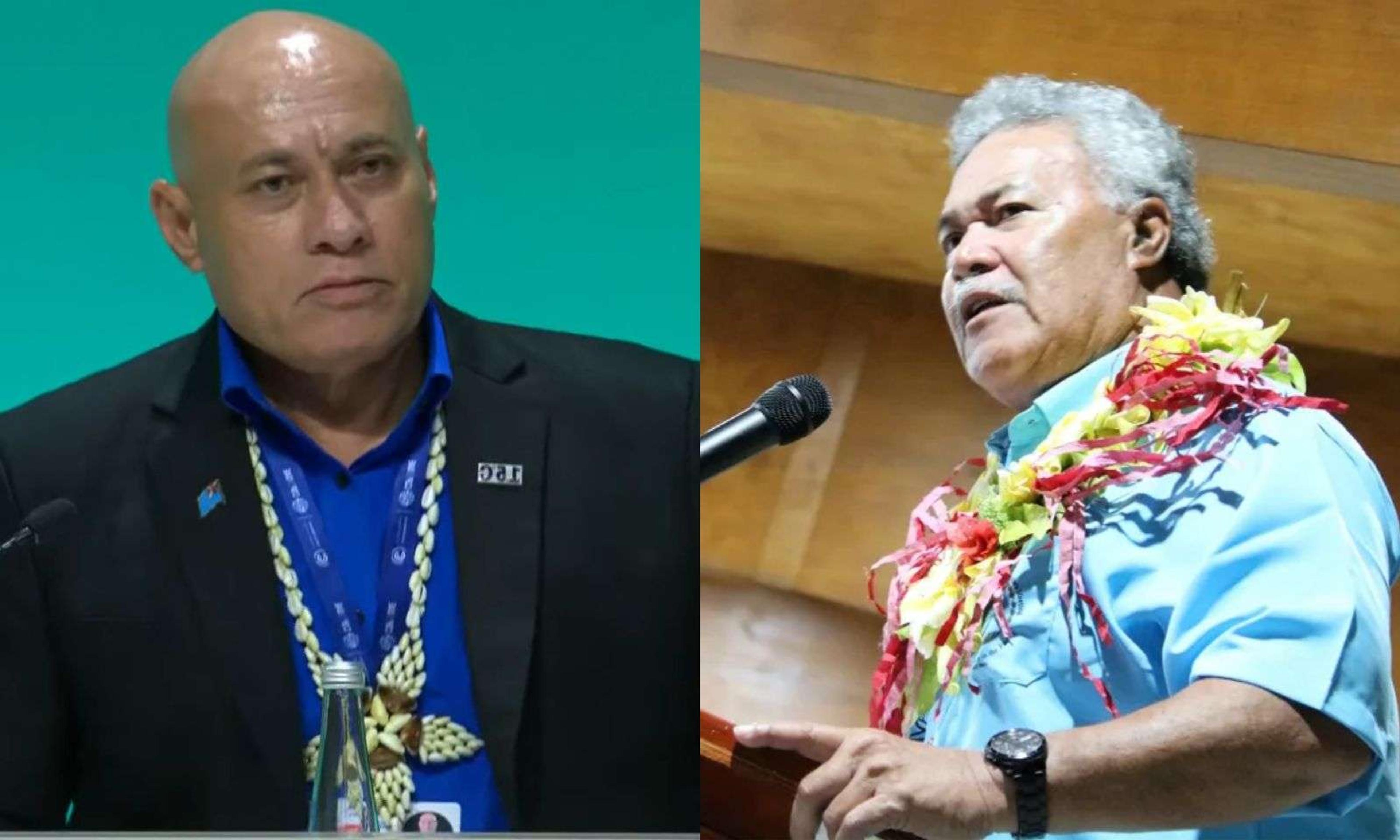

Finance Minister Seve Paeniu (left) supports the Falepili Treaty while opposition leader Enele Sopoaga (right) aims to axe it.
Photo/Tuvalu MoF/Pacific Islands Forum Secretariat
Tuvalu's elections could determine if it loses its sovereignty says expert
Massey University professor in security studies says the elections could determine the future of the controversial Falepili Treaty.




Realm relations in focus as Tokelau-NZ marks 100-year history



‘One of our most trusted leaders’: Tributes flow for a beloved rangatira


Realm relations in focus as Tokelau-NZ marks 100-year history

A security studies professor says Tuvalu's elections could determine if the island potentially loses a say in its own future.
Massey University's Dr Anna Powles says Tuvalu's sovereignty is at-risk if a successful candidate supports the hotly debated Falepili Treaty.
"There's been a lot of discussion amongst scholars, commentators from Tuvalu and across the Pacific who have raised concerns that this effectively cedes sovereignty," Powles says.
The treaty gives Australia veto rights on the island's security arrangements in exchange for visas and residency in Australia for Tuvaluans. But Powles says there are suggestions the pact essentially cedes Tuvalu's sovereignty particularly on national security matters.
"If Australia can decide what security arrangements Tuvalu can enter into with other states or entities, then yes, there is a sovereignty issue there."
She says the agreement will be seen by some as protecting Tuvaluans from the impacts of climate change, while many others are concerned it is losing its self-determination.
"For the current Prime Minister Kausea Natano, the Falepili Union is a bit of a legacy agreement for him in terms of securing the future for Tuvalu. Lines have been drawn as seen by current Minister of Finance Seve Paeniu who supports the treaty, whereas former PM and opposition leader Enele Sopoaga vowed to axe it.
"There's a lot of eyes on Tuvalu today and over the next few days. [And] Canberra is going to be watching this very closely."
Watch Dr Anna Powles speak on other Pacific geopolitical concerns below: